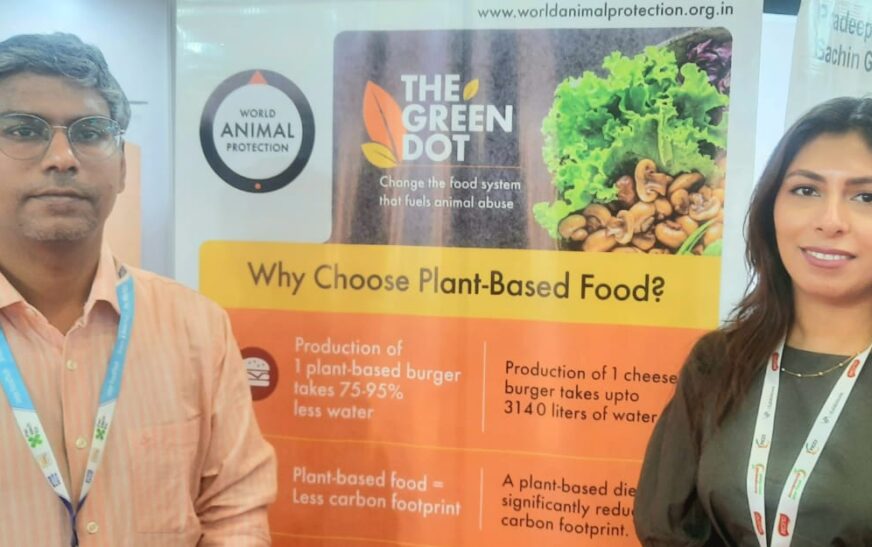For over half a century, World Animal Protection (WAP), formerly known as WSPA – the World Society for the Protection of Animals, has been at the forefront of championing animal welfare. Their relentless pursuit is for a world where animals thrive without enduring needless suffering. Globally, they lead campaigns aimed at overhauling the food system for farmed animals and putting an end to the exploitation of wild animals for profit or entertainment.
At the heart of their mission lies the endeavor to shift societal attitudes and behaviors, rallying millions to stand up for animal welfare. Through tireless efforts, they raise awareness, nurturing a global community united against animal cruelty. Recognizing the pivotal role of supporters, partners, and the broader community, World Animal Protection ensures collective action drives their initiatives. Their unwavering commitment drives continual advancements in animal welfare practices, with the ultimate goal of eradicating animal suffering worldwide.
Through collaborative endeavors, they spearhead the movement for animal rights, forging a path towards a future where all animals live free from harm.
In an exclusive discussion with The Interview World, Abhishek Shankhwar, Fundraising Manager – India, and Surbhi Chopra, Senior Campaign Officer, World Animal Protection, shed light on the organization’s pivotal role in safeguarding animals globally through advocacy and impactful campaigns. Here, we present the key insights gleaned from their enlightening conversation.
Q: How does World Animal Protection contribute to global animal welfare through its various initiatives and activities?
A: World Animal Protection, an international organization dedicated to animal welfare and protection, focuses on various themes, including the food industry. Here, our discussion revolves around the utilization of animals in food production and the associated advantages and drawbacks.
In the context of farming practices, farmers extensively administer antibiotics and growth hormones to accelerate animal growth and prevent illnesses. Even in the absence of sickness, animals receive antibiotics as a preemptive measure, akin to consuming medication without illness being present.
However, this practice yields detrimental consequences for both human and animal health. A staggering 73% of produced antibiotics are allocated to the animal sector, fostering antibiotic resistance among bacteria within these animals. Consequently, antibiotic-resistant bacteria infiltrate the food chain, perpetuated through animal waste contaminating soil, water bodies, and vegetation.
This phenomenon poses a grave threat to human health. Recent analysis of the COVID-19 pandemic revealed that 50% of deaths resulted not directly from the virus but from ineffective antibiotics administered to patients. Alarmingly, no new antibiotics have been developed globally in the past 28 years, exacerbating the issue of antibiotic resistance.
India, according to a recent survey, ranks as the second-worst country in terms of antimicrobial resistance (AMR), signifying widespread antibiotic resistance among its population. Projections suggest that within the next 10 to 15 years, existing antibiotics will become obsolete, rendering common ailments potentially life-threatening.
To mitigate this looming crisis, it’s imperative to advocate for stringent regulations on antibiotic usage in the industry and promote awareness regarding the adoption of plant-based diets. Addressing these issues is crucial for ensuring a sustainable future, as the current industrial setup is unsustainable, not solely due to antibiotic abuse and hormone usage but also in broader ecological terms.
Q: What initiatives is the Green Dot movement undertaking to promote sustainability and environmental consciousness?
A: The Green Dot campaign is actively raising awareness collectively. It focuses on issues like antimicrobial resistance (AMR) and the impact of factory farming. For instance, consider the resources needed to produce just one kilogram of meat. It requires a staggering 4000 liters of water and 25 kilograms of grains, which could otherwise directly alleviate hunger. Essentially, we’re investing more resources to yield less sustenance, rendering the current system unsustainable.
Our objective isn’t to advocate for complete elimination but rather to encourage reduction and more sustainable practices. Alongside promoting environmental sustainability, our efforts aim to mitigate animal suffering. For instance, chickens are often subjected to growth hormones, accelerating their growth to an unnatural pace within a fraction of their normal lifespan. Consequently, they suffer from weakened limbs and an inability to move freely, leading to a distressing existence.
These issues extend beyond poultry farming to include fisheries and dairy production, all of which introduce harmful chemicals into our food chain. Therefore, our campaign emphasizes the urgent need for change.
Q: How do the practices discussed earlier impact the environment adversely?
A: Effectively, when discussing impact, it’s crucial to recognize that animals and the environment are not isolated entities; we are all interconnected. The health of animals directly influences us and our surroundings. Similarly, the state of the air and water profoundly affects both the environment and ourselves.
Thus, it’s evident that everything is intertwined. A stark illustration of this interconnectedness can be found in recent studies revealing farmers’ practices. They have confessed to disposing of dead carcasses by simply tossing them into nearby river streams, neglecting proper decomposition methods.
Moreover, farmers often sell or give away manure and waste from their farms to neighboring agriculturalists at low prices. These byproducts, used as fertilizers and manure, effectively transport antibiotics from poultry farms to agricultural lands.
This chain of events underscores the reality of the situation, as explained earlier. Indeed, it’s a troubling reality that unfolds before us.
Additionally, deforestation, aimed at cultivating more land, disrupts wildlife habitats, exacerbating the issue further.
Q: In what ways does your advocacy differ from that of PETA?
A: PETA and our organization share similarities, albeit with a key distinction: PETA focuses on animal rights, whereas we prioritize animal welfare. Rather than advocating for an immediate end to everything, we advocate for a transformative approach. We guide individuals toward a gradual shift in their lifestyles.
We don’t expect everyone to become vegan overnight; such a drastic change isn’t feasible. Instead, we encourage a transition toward higher welfare standards, especially for non-vegetarians. By improving conditions for animals in the supply chain, we pave the way for a reduction in demand over time.
As welfare standards rise, there will naturally be less space and demand for animal products. This creates an opportunity for individuals to gradually adopt a plant-based diet. The transition will be gradual, ensuring it’s not a sudden shock to one’s system. This progressive approach aligns with our philosophy.










0 Comment
Nice
Hey, you used to write wonderful, but the last few posts have been kinda boring… I miss your super writings. Past several posts are just a little out of track! come on!
Comments are closed.